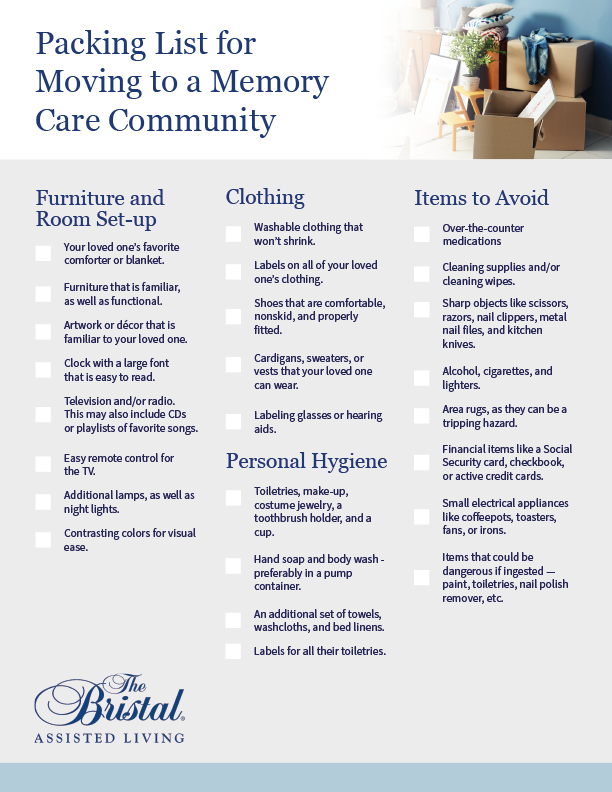Comprehensive Memory Care Programs with Alzheimers Care Charlotte Solutions
Comprehensive Memory Care Programs with Alzheimers Care Charlotte Solutions
Blog Article
Producing a Safe and Supportive Setting for Alzheimer's Care
The creation of a helpful and risk-free setting for individuals with Alzheimer's is vital in boosting their top quality of life. This includes not just physical adaptations within the home, such as decreasing threats and including acquainted elements, but additionally the application of structured regimens and meaningful activities that cater to their cognitive needs. Recognizing the emotional and mental dimensions of treatment can dramatically impact their sense of protection and connection. Exploring these multifaceted methods can expose critical insights right into efficient caregiving methods that might change the daily experiences of both individuals and caregivers.
Comprehending Alzheimer's Demands
Frequently, individuals with Alzheimer's disease exhibit a series of demands that require customized approaches to care. As the problem proceeds, cognitive decrease manifests in numerous ways, influencing memory, thinking, and also the capability to do day-to-day activities. Caregivers need to recognize these progressing needs to provide appropriate assistance and make sure a better of life for those affected.
One crucial aspect of recognizing Alzheimer's demands is acknowledging the value of regular and familiarity. People usually discover comfort in well established patterns, which can lower stress and anxiety and confusion. Caretakers ought to make every effort to produce structured everyday routines that include meaningful tasks lined up with the person's passions and capabilities.
Additionally, reliable communication is extremely important. Individuals with Alzheimer's might have a hard time to express themselves or comprehend intricate language. Caregivers must employ straightforward, clear language, use non-verbal hints, and practice energetic paying attention to promote understanding and link.
Lastly, social and emotional requirements can not be neglected. Giving opportunities for social communication and keeping connections can significantly improve psychological well-being. Caregivers ought to urge interaction in neighborhood tasks or household events, promoting a feeling of belonging and purpose. Comprehending these varied demands is necessary for producing a supportive care setting.
Creating a Safe Home
Developing a safe home for individuals with Alzheimer's condition is important to promoting and minimizing threats independence. Make sure that pathways are clear and well-lit, as proper illumination decreases disorientation and boosts movement.
Including flexible functions is also crucial. Install grab bars in bathrooms and near staircases, and take into consideration utilizing non-slip floor coverings in wet areas. In addition, using different shades for walls and floors can assist in identifying spaces, helping to reduce complication.
Experience is important for individuals with Alzheimer's. Individualizing the setting with acquainted things and pictures can enhance a feeling of belonging and safety - Alzheimers Care Charlotte. It is also useful to have actually a designated location for daily activities, such as reading or crafting, which can give framework to their day
Last but not least, implementing a protected exterior area enables secure expedition while getting in touch with nature. By thoughtfully developing the home environment, caregivers can substantially improve the quality of life for people coping with Alzheimer's disease.
Enhancing Interaction Skills

Non-verbal interaction, including faces, gestures, and touch, plays a vital role in sharing empathy and understanding. Maintaining eye get in touch with and a tranquil attitude can enhance the comfort level of the individual, advertising a feeling of safety and security.
Moreover, it is crucial to practice active listening. This includes being fully existing, showing patience, and enabling the individual to reveal themselves without disruption. Repetition might be necessary; caregivers ought to be prepared to review topics or questions, as people with Alzheimer's may deal with memory recall.
Additionally, making use of visual help or hints, such as photographs or familiar items, can facilitate like it recognition and interaction. Eventually, enhancing interaction skills has to do with developing depend on and developing an atmosphere where people feel listened to, valued, and comprehended, therefore enriching their lifestyle.
Urging Social Communication
Promoting meaningful social communications can substantially boost the health of individuals with Alzheimer's condition. Engaging with others not only assists combat sensations of seclusion but also boosts cognitive feature and psychological health. Structured social activities, such as team crafts, video games and arts, or songs treatment, create opportunities for locals to get in touch with peers and caregivers, which can result in enhanced state of mind and lowered anxiousness.
Developing a welcoming environment that urges socializing is necessary. This can be achieved by arranging common spaces that help with interaction, such as relaxing seating areas or task rooms. In addition, incorporating acquainted and culturally pertinent tasks can stimulate memories and urge participation, permitting people with Alzheimer's to really feel even more connected to their previous experiences.
Additionally, caretakers need to be trained to recognize and advertise social engagement among citizens. Straightforward gestures, such as launching conversation or assisting in little seminar, can aid people feel valued and included. Routinely set up get-togethers ought to correspond yet versatile, accommodating differing levels of capability and interest. By prioritizing social interaction, we can considerably enrich the lives of those living with Alzheimer's, promoting a sense of community and belonging.
Supporting Caretaker Wellness

To support caretakers, organizations ought to use normal training and instructional sources to enhance their understanding of Alzheimer's condition and caregiving strategies. Giving accessibility to reprieve care services permits caregivers to take required breaks, decreasing anxiety and exhaustion - Alzheimers Care Charlotte. In addition, fostering a neighborhood with assistance teams can facilitate emotional sharing and the exchange of functional guidance among caretakers, developing a network of shared support
Mental health and wellness sources, such as counseling services, can likewise be crucial in addressing the emotional toll caregiving can take. By focusing on caregiver well-being, we create a more lasting caregiving setting that not only profits the caregivers themselves but likewise enhances the general top quality of care obtained by people with Alzheimer's. Ultimately, supporting caretakers is an essential element in cultivating a compassionate and efficient care setting.
Verdict
Finally, the creation of a encouraging and risk-free setting for people with Alzheimer's is necessary to boosting their quality of life. By prioritizing safety with thoughtful design, fostering emotional health with familiar components, and advertising involvement with structured regimens, caretakers can substantially impact the overall experience of those affected by this condition. Sustaining caregiver wellness is vital, as it eventually adds to a more caring and effective care atmosphere.
Rep may be required; caregivers should be prepared to revisit topics or concerns, as individuals with Alzheimer's may battle with memory recall.

Report this page